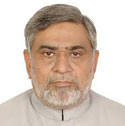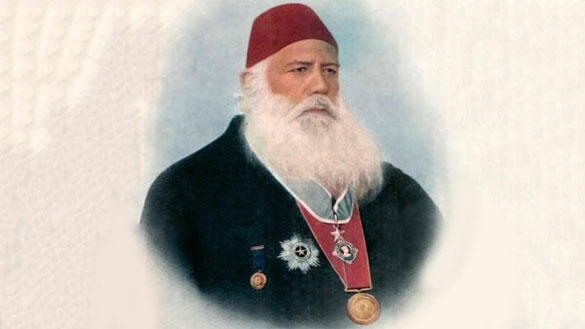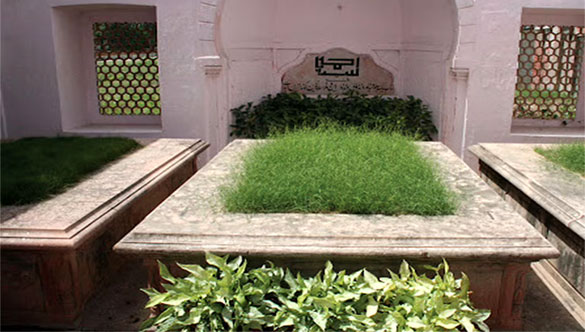
By Prof Akhtarul Wasey, Tr. New Age Islam
(Translated by New Age Islam Edit Bureau)
23 October 2020
Sir Syed's birthday (17 October) has recently passed but the significance of his institutional work remains like something freshly minted. Sir Syed established the first institution of modern secular education in the Islamic world which had a humble beginning in a madrasa with only 5 students in Sami Manzil in Aligarh in 1875. In less than two years, it was developed into the MAO College in February 1877 and subsequently after the demise of Sir Syed Ahmad on March 27, 1898, an institutional movement to make his madrasa into a university commenced in 1920. It achieved great success and that is why we celebrate it every year.

Sir Syed's legacy is like a canopy in the life of Indian Muslims without which one would not be able to visualise their religious, literary, cultural, social and educational imprints. He is the father of modern Urdu prose, the proponent of a new era in Urdu journalism, the inculcator of rationalism in theology and the initiator of modernist reforms and enlightenment in a society that was on the verge of civilizational decline and cultural decay.
Also, a proponent of Hindu-Muslim unity and forerunner of modern secular education in the Indian Muslim polity, Sir Syed engaged with great integrity in his missions. Patience, perseverance and a never-say-die approach were the core of his persona. He was not afraid of the tyrant rulers or the pressure from common people. Notwithstanding his rational enlightenment and free thinking, he was an orthodox Muslim at the same time, so much so that he defends Prophet Muhammad (pbuh) intellectually in his sharp rebuttal titled 'Ahmadiyya Sermons' to the blasphemous book 'Life of Muhammad' by Sir William Peacock. It should be noted that this refutation work was published in both English and Urdu and is considered among the seminal and cogent literature written on this subject.
In addition to all this, Sir Syed had an intellectual temerity and incredible tenacity to establish the Scientific Society in a traditionalist environment and he also published his newspaper namely, “Scientific Society”. More to the point, he wrote the exegesis or Tafseer of the Gospel in Urdu titled, “Tabee’in-ul-Kalam [also available in English as “Mohammedan Commentary on the Holy Bible”) in a way that fostered inter-religious understanding and a genuine scriptural dialogue in modern times. The salient feature of his Biblical commentary is that he let the subject matter speak for itself.
Sir Syed did not study the Holy Bible through the prism of a Muslim, but rather he looked at the religious scripture the its followers view it. He selected texts of the Bible in Hebrew with its translation into Urdu and English and recognised the authenticity of the Bible in these words: “Now, we Mohammedans believe from our heart that the Tourait, Zuboor and the Injeel are all true and sacred records”. He turned the tables on the contemporary ulema by declaring that the Christian scriptures, however distorted or diluted, still contain the messages revealed to the Prophets. That is precisely what prompted the famous German Christian scholar and a Jesuit Dr. Christian W. Troll to conduct a research on Sir Syed’s study of Christianity.
No doubt, Sir Syed sided with the British in the First War of Independence and wrote “Tarikh Ki Sarkashi, Bijnor” (a rebellious history of Bijnor) in which he levelled scathing criticism against the anti-British scholars. But concurrently, only he had the audacity to also write “Asbab-e-Baghawat-e-Hind” (Causes for Uprising in India) in which he candidly exposed the policies of East India Company and the Christian missionaries. He strongly criticized the atrocities of the British against Muslims in particular. It was only after this book was translated into English and was sent to the members of the British Parliament and to Queen Victoria that the East India Company was expelled from India. It should not be forgotten that Sir Syed refused to accept the perks and privileges that the British, after their complete domination, wanted to grant to him such as a jagir (an estate with revenues). After the fall of the Mughal Empire in 1857, Sir Syed emerged as someone dedicated to only his nation and his community.

The Aligarh Muslim University (AMU) and Sir Syed's intellectual followers the world over perpetuate his memories in different possible ways. One form of commemoration is that a national and an international personality or institution in the name of Sir Syed is awarded a prize in his tribute. It is a great pleasure to see that the award this year was given to Anjuman-e-Islam Mumbai at the national level. I heartily congratulate the Award Selection Committee and the Vice Chancellor of Aligarh Muslim University, Prof. Tariq Mansoor, not only because this award has been given to a major educational institution but more significantly, because by honouring Anjuman-e-Islam, the people of Aligarh have in fact pragmatically dealt with the ill-wishers who attempt to negatively project the disagreements between Sir Syed or the Aligarh movement and the founder of Anjuman-e-Islam Badruddin Tayyab ji. The fact is that both of the thinking leaders were sincere in their intellectual services to the community and homeland. Both wanted to lay the foundation for a new world for Muslims and to great extent they succeeded.
Also, there was a logical justification for the disagreement between Sir Syed and Tayyab ji. After the 1857 uprisings in Delhi and northern India, Sir Syed had witnessed with his own eyes the barbaric brutality of the British against the freedom fighters, especially the Indian Muslims. He was well aware of the sentiments and the temperament of the Muslims in northern India, which often blurred the delicate lines between courage and imprudence.
On the other hand, in Western India, especially in Mumbai, this was not the case. Further to the point, Tayyab ji was also invited to chair an annual meeting of the Aligarh Educational Conference. In the early sixties, his grandson Badruddin Faizul Hassan Tayyab Ji was elected as the Vice Chancellor of Aligarh University. That Anjuman-e-Islam has now been awarded by the AMU for making concerted efforts for the education of Muslims should be taken in good faith. The people of Aligarh have proved that they greatly appreciate sincere efforts of an institution for the educational upliftment of Muslims in India, which is getting a new direction and a gradual momentum under the guidance of Dr. Zaheer Qazi. This, in essence, is a step towards the actualisation of Sir Syed's dreams.
Now Aligarh Muslim University is not the movement but the result of the patience and perseverance of Sir Syed in his indefatigable struggle of the cultivation of an intellectual and scientific society. Therefore, it is highly important that the thoughts and writings of Sir Syed and his comrades be made public. The Sir Syed Academy, established through the efforts of Prof. Khaliq Ahmad Nizami during the tenure of the late Prof. Abdul Aleem, has been doing tremendously remarkable work on Sir Syed. Even outside Aligarh, Sir Syed's admirers are promoting his scholarly works in their own capacity. A valuable announcement in this regard has come from the Chairman of the Aalami Urdu Trust, Advocate A. Rahman Alig in which he desired to publish Sir Syed's works in the style of late Ismail Panipati with the determination that the second edition will be better than the first in every respect. We congratulate A. Rehman Sahib for this noble endeavour. On this occasion, we kindly request Prof. Tariq Mansoor to publish it from the AMU Publications Division so that it could reach a large circle of readers.
In this regard, they can form a working group consisting of people like Prof. Abdur Rahim Qidwai, Prof. Ali Muhammad Naqvi, Prof. Shaaf’e Qidwai, Prof. Abdul Aleem, Prof. Saud Alam Qasmi, Prof. Hashim Ali under whose supervision this work can be accomplished. This will be a timely tribute to Sir Syed to mark centenary celebration of the Aligarh Muslim University for which Prof. Tariq Mansoor will always be remembered.
-----
Urdu Article: Jamia Millia Islamia: Journey of a Century جامعہ ایک صدی کا سفر: ابھی عشق کے امتحان اوربھی ہیں
Courtesy: Inquilab, New Delhi, October 19, 2020
New Age Islam, Islam Online, Islamic Website, African Muslim News, Arab World News, South Asia News, Indian Muslim News, World Muslim News, Women in Islam, Islamic Feminism, Arab Women, Women In Arab, Islamophobia in America, Muslim Women in West, Islam Women and Feminism

No comments:
Post a Comment